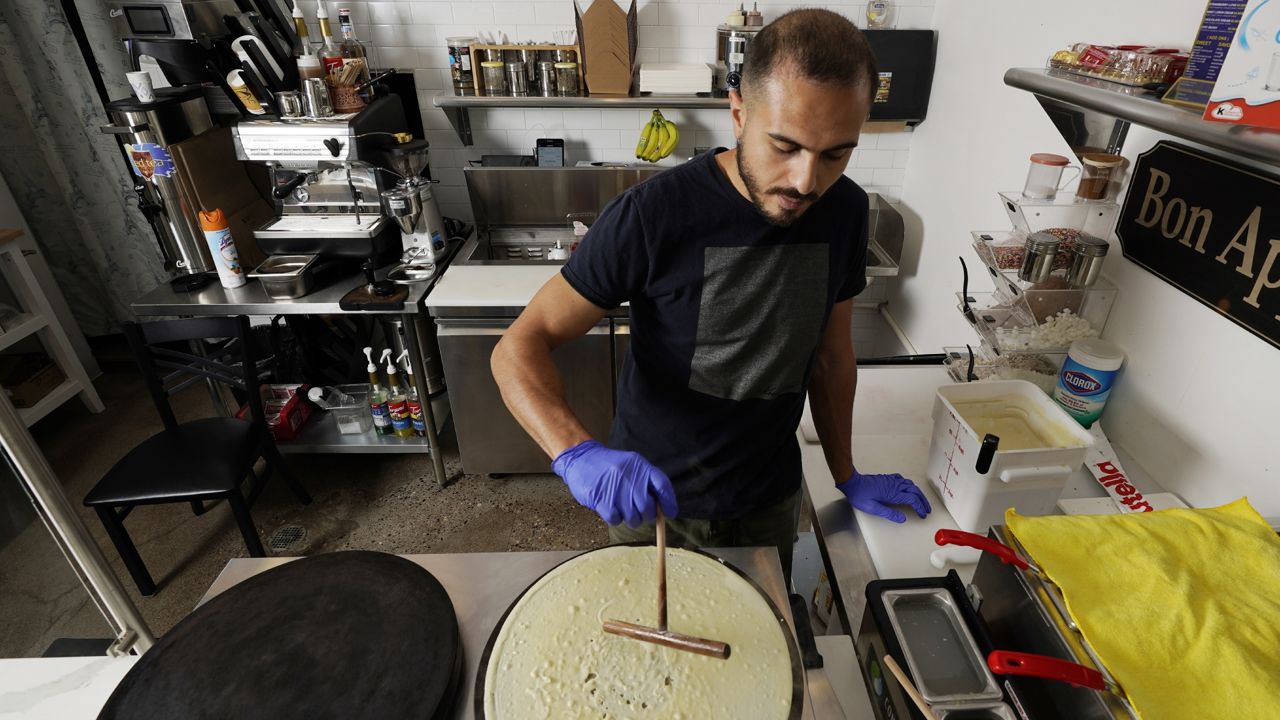NATIONWIDE — They came fleeing war and persecution in countries like Myanmar, Eritrea and Iraq, handpicked by the United States for resettlement under longstanding humanitarian traditions.
Now, tens of thousands of refugees welcomed into the U.S. during the Obama administration are American citizens, voting the first time in what could be the most consequential presidential contest of their lifetimes.
The Obama administration, with help from now-presidential candidate and then-vice president Joe Biden, put forward multiple measures to increase access for refugees to resettle in the United States: The signature Deferred Action for Childhood Arrivals (DACA) program helped nearly 1.5 million young asylum seekers from being deported, according to World Relief. President Obama also signed an order before leaving office in 2017 that allowed 110,000 additional refugees to settle in the U.S. before the year ended.
The former president also allowed the most Muslim refugees to enter the country than any other president — a stark contrast to his successor, President Donald Trump.
Republican and Democratic administrations resettled an average 95,000 refugees annually over four decades, but the Trump government whittled that down to a cap of 18,000. Only about half that number have come in this year amid the coronavirus pandemic.
That downward trend seems likely to continue if Trump is reelected; Biden has promised to pump the annual refugee goal to 125,000.
With some states already sending out early ballots, the first-time voters from Arizona to Florida are excited but mindful of their responsibility in helping to choose the country’s next leader. The winner will decide the future of the very resettlement program they benefited from and that Trump has hollowed out and could halt altogether in the fiscal year starting Oct. 1.
“Most refugees come to this country escaping political systems where the government is not their friend,” said Hans Van de Weerd, vice president of resettlement for the International Rescue Committee, a top agency that brings refugees to the U.S. “To have their voices be heard is very powerful.”
There are no voter registration figures for refugees, but the National Partnership for New Americans predicted that 860,000 immigrants of all kinds would gain that right this year by becoming citizens even in the face of barriers like an 83% increase in naturalization fees, from $640 to $1,170.
Through its citizenship classes, the International Rescue Committee has helped around 6,000 refugees and other newcomers become Americans each of the last few years. Other groups have also helped refugees become naturalized.
Department of Homeland Security figures in recent years have shown refugees and asylum-seekers are the immigrants most likely to gain citizenship, with a naturalization rate of over 70% during their first decade in the country. Refugees can apply for citizenship after five years as permanent residents.
Once they become Americans, they can register to vote.
“So many want to vote this time,” Basma Alawee told The Associated Press. Alawee is a refugee herself and an organizer for the Florida Immigrant Coalition who has been holding webinars helping other refugees prepare for Election Day.
Born in Iraq and now a U.S. citizen living in Jacksonville, Florida, Alawee said she also plans to cast her first presidential ballot Nov. 3.
Other refugees spoke with The Associated Press about the significance of the upcoming election, with many pointing out the differences in the voting system between the United States and their respective home countries.
Bilal Alobaidi, a refugee from Iraq who arrived in the United States in 2013, recalled elections in his home country under Saddam Hussein when only the leader’s name was on the ballot. The only possible choices were “yes” or “no.”
“And if you said ‘no,’ something bad could happen to you,” Alobaidi told the AP.
He was resettled in Phoenix, a desert city with sweltering weather like that of his hometown Mosul, and was naturalized last year.
A former social worker with the International Organization for Migration, Alobaidi now works for the International Rescue Committee, helping other refugees in Arizona find housing and other services.
Alobaidi said he looks forward to voting for the candidate he chooses.
“This is the first time I will practice democracy,” he said. “I can’t wait.”
The Associated Press contributed to this report.



